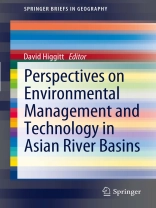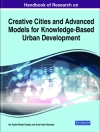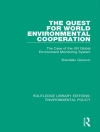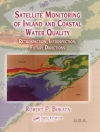Asian river basins are undergoing rapid transformation. This volume considers the implications of the environmental change-development nexus for water management, river health and hazard awareness. As Biswas and Tortajada (2011) have recently commented, water management in Asia will likely change more in the next twenty years than in the last 2000 years. Critical environmental trends include decreasing flows of water and sediment due to dam construction and increased water extraction, land use change (especially forest removal), encroachment and degradation of floodplain and wetland environments, increased water demand and concerns about water security, urban expansion and associated pollution of rivers and contamination of groundwater reserves. These challenges are being reframed by new approaches to water management which represent a transition from engineering-dominated approaches towards integrated water management, from technology transfer to adaptive technologies. The volume comprises an introduction and five chapters. Brierley and Callum reframe approaches to river repair within emerging theories of in ecology and earth science which regard nature as a complex adaptive system replete with inherent uncertainties. These ideas are mirrored in the four case study chapters which deal with water governance in the Mekong Basin (Hirsch); hybrid adoption of water resource technologies in India (Barbanente et al.); determination of sediment dynamics in Java Rijsdijk); and ecological conservation imperatives in the headwaters of the Yellow, Yangtze and Mekong rivers in western China (Li et al.).
विषयसूची
1. Environmental Management and Technology in Asian River Basins.- 2. Environmental Science and Management in a Changing World.- 3. River Hardware and Software: Perspectives on National Interest and Water Governance in the Mekong River Basin.- 4. Evolutionary Technologies in Knowledge-Based Management of Water Resources: Perspectives from South Asian Case Studies.- 5. Surface Runoff and Sediment Yields from Tropical Volcanic Upland Watersheds as Influenced by Climatic, Geological and Land-use Factors.- 6. Ecological Protection and Restoration in Sanjiangyuan Natural Reserve, Qinghai Province, China.- Index
लेखक के बारे में
David Higgitt is Professor of Physical Geography at the National University of Singapore. He previously held posts at Durham University and Lancaster University in the UK. He is a geomorphologist whose research is focused on sediment delivery processes. He has worked extensively in Asia examining sediment dynamics and water chemistry in large rivers but also works on smaller scale catchment processes and management. David has served on the executive committees of the International Association of Geomorphologists and the Asia Oceania Geosciences Society. He has published numerous articles and book chapters on geomorphological and sustainability themes. He is also Editor of the Journal of Geography in Higher Education and Associate Editor of the Singapore Journal of Tropical Geography.












